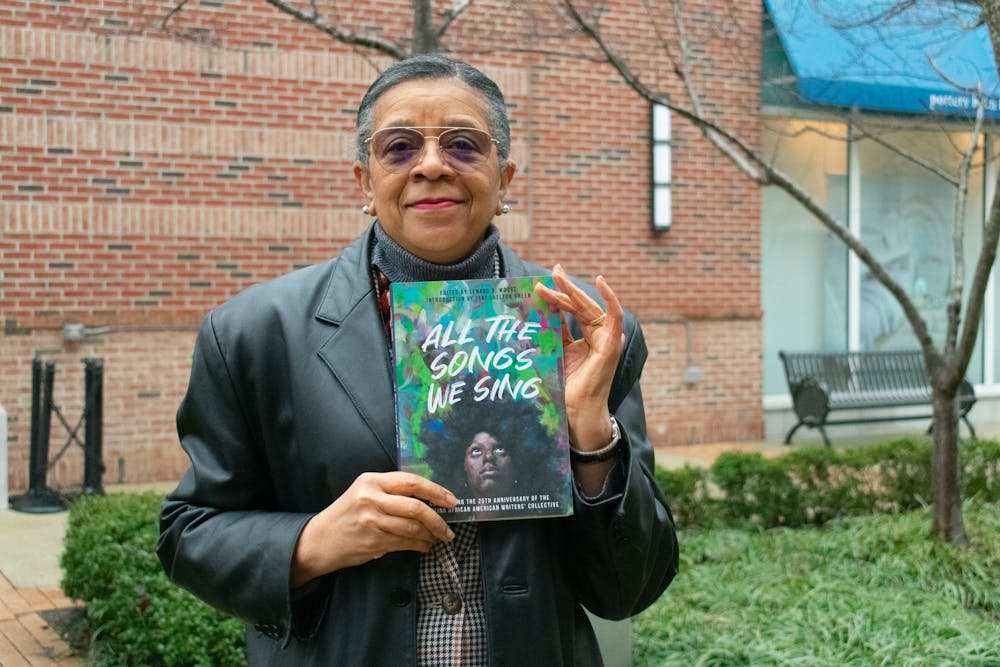When poet Raina León first joined the Carolina African American Writers Collective after moving back to North Carolina from New York, she met Lenard D. Moore while he was grieving his daughter’s death, and wrote a poem a day to memorialize their relationship.
These daily poems eventually morphed into the groundwork for a new anthology of writing for the collective to share: “All the Songs We Sing.”
On Tuesday, University Libraries and Blair publishing company paired with four members of the CAAWC to read some of the writers’ contributions to the book. “All the Songs We Sing” is a way to celebrate the twenty fifth anniversary of the collective and to share the experiences of these writers.
The four writers slated to read – León, L. Teresa Church, Ashley Harris and Mélina Mangal – come from different writing backgrounds, and thus shared pieces of different styles.
Mangal read a piece of fiction; León, Harris and Church shared poems — but everything came with a different backstory. —
“Anytime I've read with the collective there is always such joy, always such fellowship,” León said. “And even if no one is singing, everyone is singing. By that I mean, there’s that musicality, that delight in sound, and how we harmonize with one another, and also explore the discordance of the message within the collective and beyond the collective.”
The CAAWC was founded in 1995 by Moore as a way for Black writers in North Carolina to gather, write, socialize and read each other's stories and poems. Church was one of the original members, and she describes the writers collective as a family.
“When I went to the first meeting in the summer of 1995, I met writers that I didn't know of and writers who did not know me, and immediately we felt a kinship with each other,” Church said. “We are people who support one another in every particular phase of our lives. I would simply say that the Carolina African American Writers Collective is the absolute best thing that happened to me as a writer.”
Since “All the Songs We Sing” is a written representation of the Black experience, the writers said they took a lot from the reading after hearing each other share their stories.




